Fort Lewis, Wash. - His heart is pumping, but his mind and body are at ease. The wind contours around him as he listens to the sound of his feet slowly and rhythmically massage the pavement. It is in this setting that this Soldier finds himself most relaxed.
"Running is my therapy - my way to solve problems," said 54-year old Edwin Nieves, or simply "Chief," as he is known to his Soldiers.
Like many who enter the military, the path this dedicated runner chose was not one he knew much about. Chief enlisted in the Army in 1983 after teaching auto body for 11 years at a vocational high school in San Sebastian, Puerto Rico.
"It was a life-changing experience," explains Chief of his journey to becoming a runner. "My goals were to change my life and learn a new language in the process."
Joining the Army and being stationed in Germany provided him the chance to accomplish both goals. For 6 years, he attended night-time college classes to complete his bachelor's and learn English fluently. At the same time, he studied German.
Six years after enlisting, he was selected to attend warrant officer candidate school.
For most of the 1990s, Chief kept the same routine. He would do Army PT, work and go home.
In 1999, the then 46-year old began another life-altering change.
"I had just returned from an assignment in Korea, and a major I worked with said 'Let's run a marathon,'" explained Chief.
At the time, the furthest he ever had run was 4 miles. After months of training, Chief completed the Rocket City Marathon in Huntsville, Ala. His time was 3 hours, 43 minutes.
The confidence boost from completing the 26.2-mile challenge spurred a passion for running.
"It was the beginning of my mid-life crisis!" Chief exclaimed.
He hasn't stopped running since that first race 9 years ago. Chief estimates that he has run in more than 100 races since then, 12 of them being marathons.
The most challenging of those 12 marathons was the 2007 Chicago Marathon.
"(When I was) at Mile 21, they called the race," explained Chief. "They stopped it because there were so many heat casualties."
One man died and 49 were evacuated to hospitals during the 2007 Chicago Marathon. Temperatures soared to around 90 degrees with high humidity. The chief walked the rest of the route to complete the race.
"When they called it, I was like "Thank God because it's so hot,'" said Chief. "It's hard to train in Seattle and then go run a race in Chicago."
The next marathon he is planning for is the 2009 Boston International Marathon in Iraq. About three months before the race, Chief says he will begin a running regimen of about 60-70 miles a week. He currently runs 35-40 miles a week.
In a recent effort to save gas, he has been alternating between running and bicycling the 9.2 mile distance to and from work and his DuPont, Wash. home.
"It's a means of staying in shape, and it saves me money," said Chief.
Chief's success on the road has inspired those he works with. He says that 12 of the approximately 25 people he's recruited and trained to run races have completed marathons.
"I trained those guys hard," said Chief. "Towards the end of our three-month train up, we would be coming into work at 4 in the morning to run 20 miles."
He said the drive to share his knowledge with others is "the teacher that's still inside" him.
Among the recruits is James Davis, who has completed several half marathons.
"Chief is a very focused, forward-moving person," explained Davis. "He's renewed my interest in running."
Davis credits Chief with helping him lose weight and increase his PT test scores.
Chief said the hardest person to recruit was his wife. He said it has taken him "many years" to get her to share his passion for running.
He said there are a few things everyone can do become good runners.
"The most important thing a person can do is stay healthy," said Chief. "Don't cut corners - eat well and take care of yourself."
Chief attributes part of his success to good footwear. He adds that it's important for those who are just starting out to not push themselves too hard and to run twice the distance of the race when training. The exception is if you are planning to run longer races, such as a half marathon or a marathon.
"In that case, you want to break up the distance over a few days," said Chief.
If there is one thing Chief said others should learn from his running experiences is perseverance pays off and not to pass judgment on others abilities
"I remember when I ran my first marathon, a woman in her 60s passed me at Mile 24," said Chief. "She looked at me as she was running by and said 'Sonny, don't quit!'"
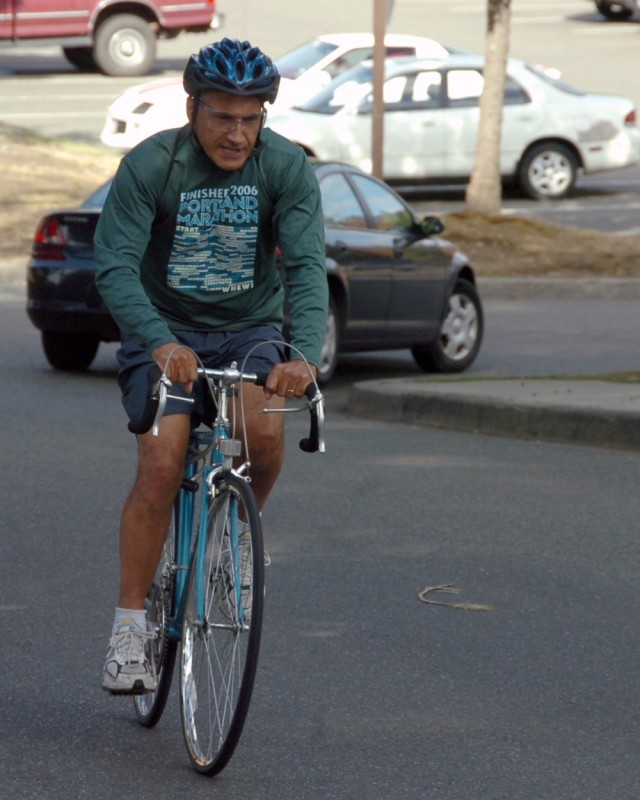
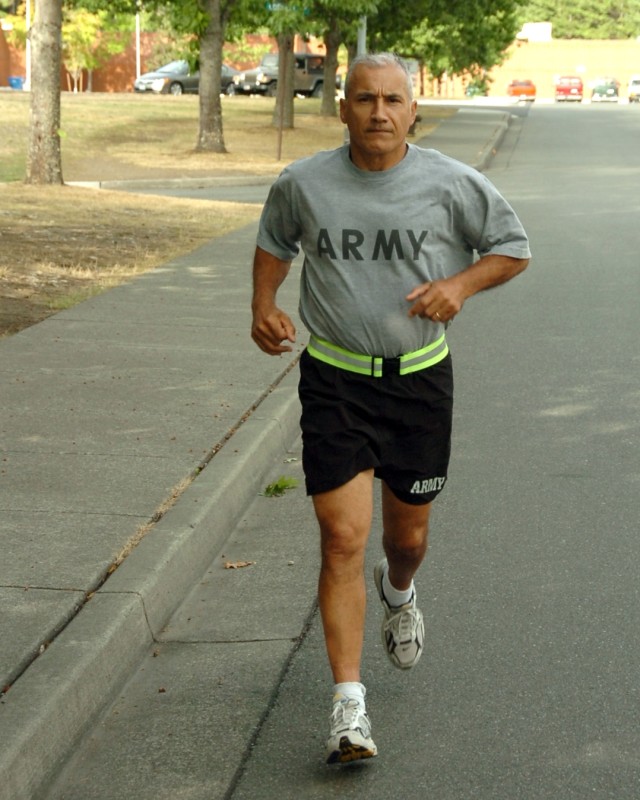
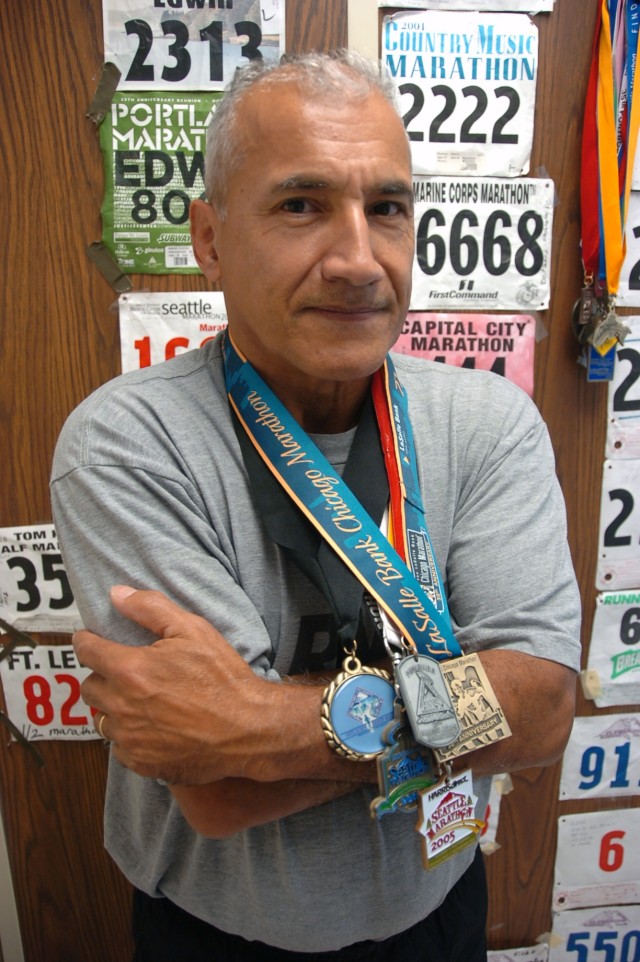
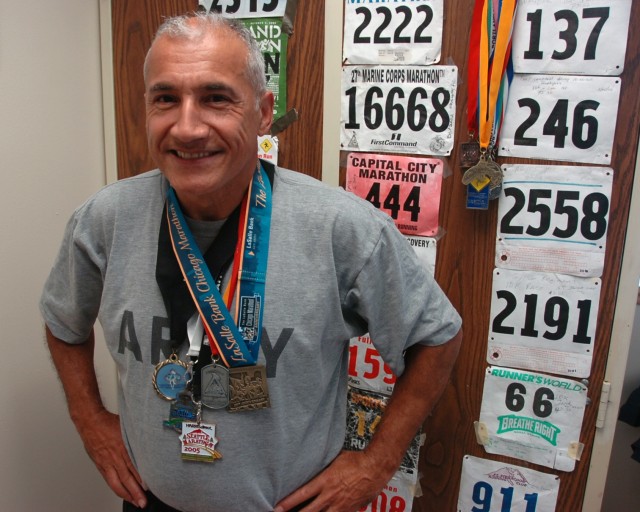
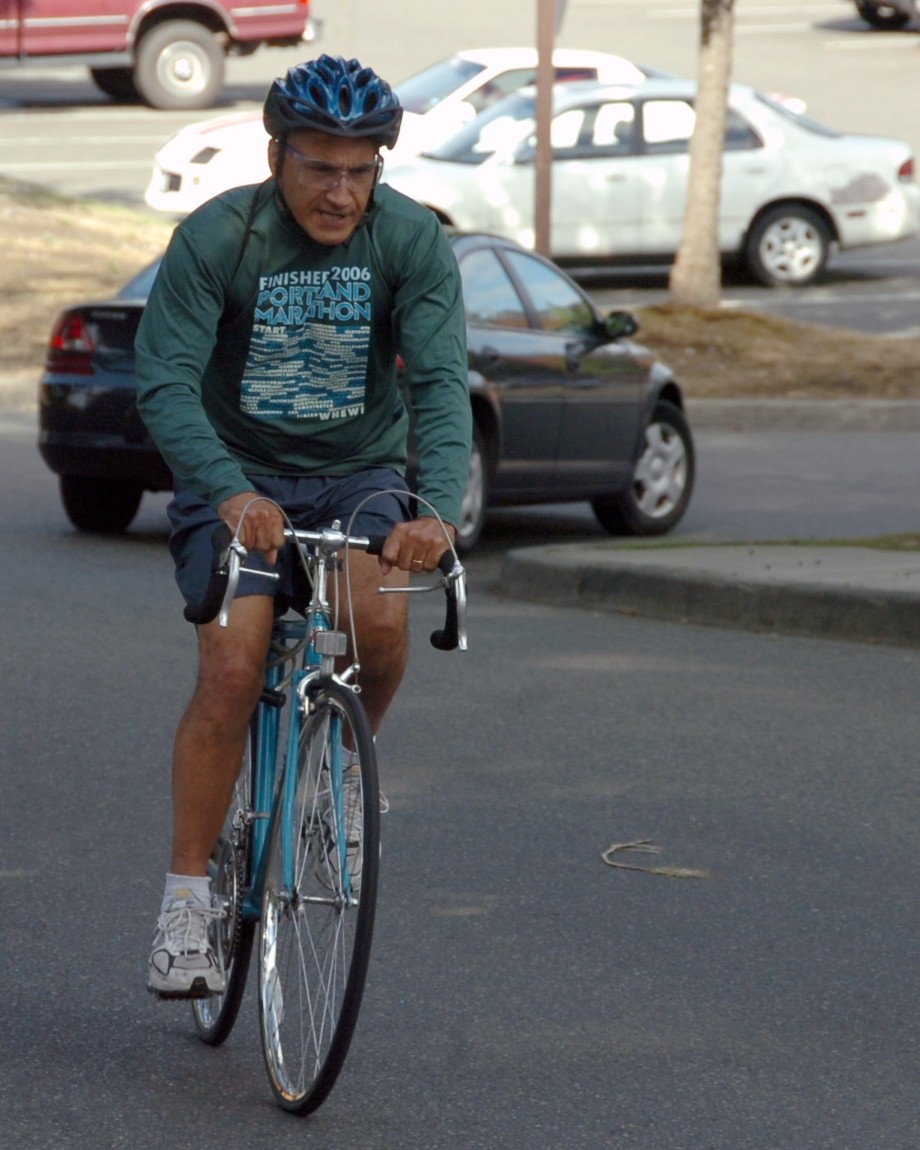
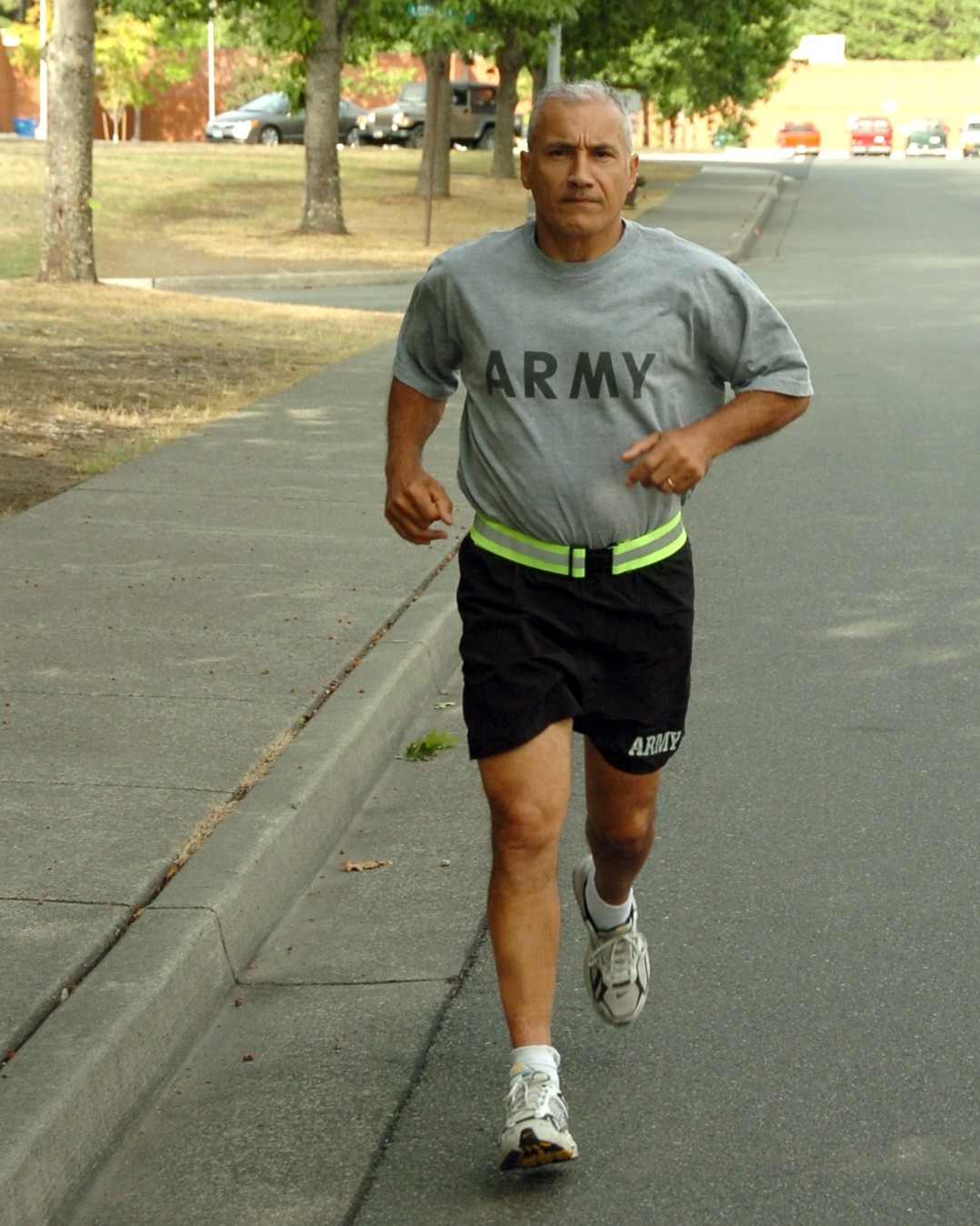
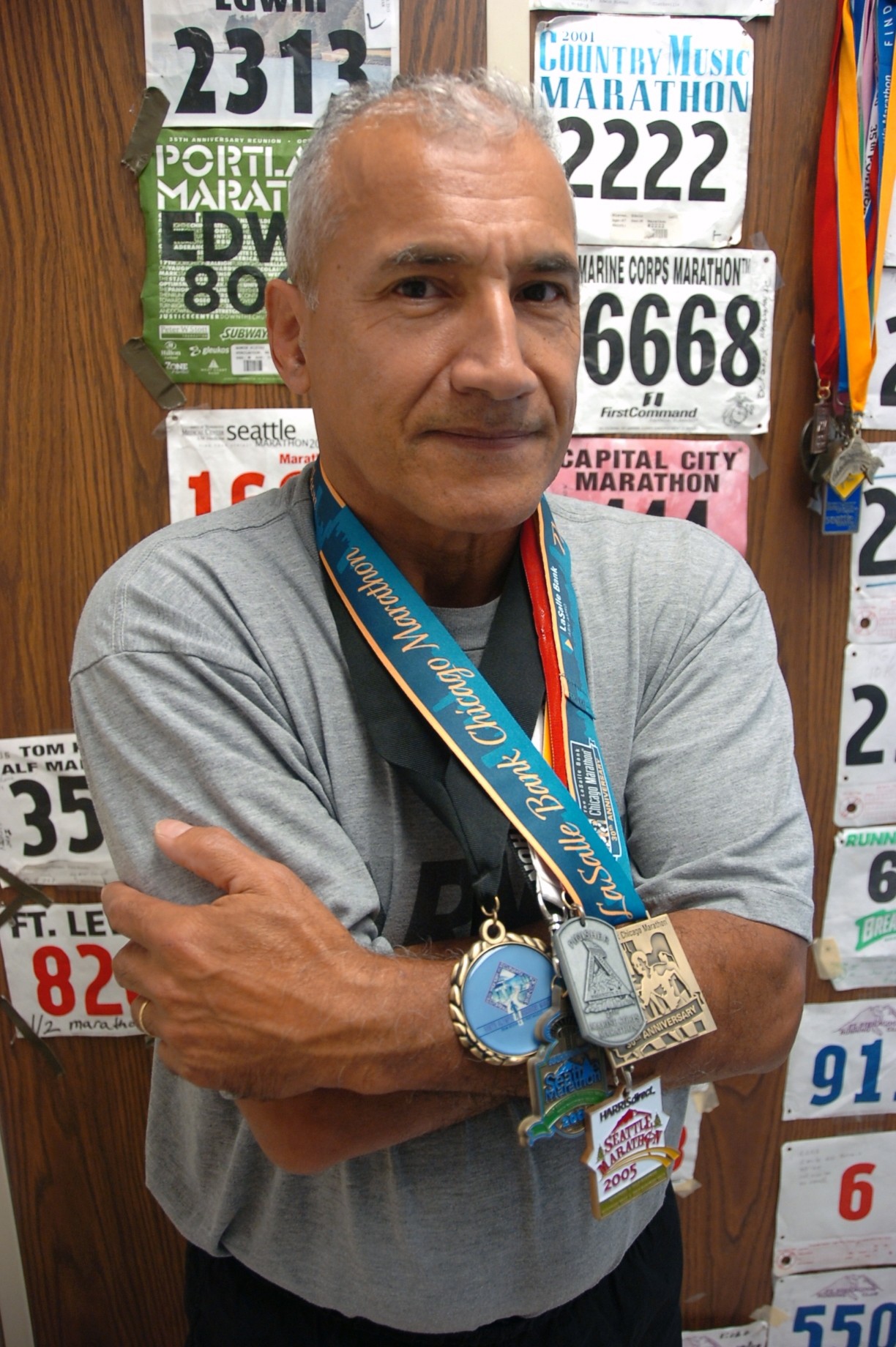
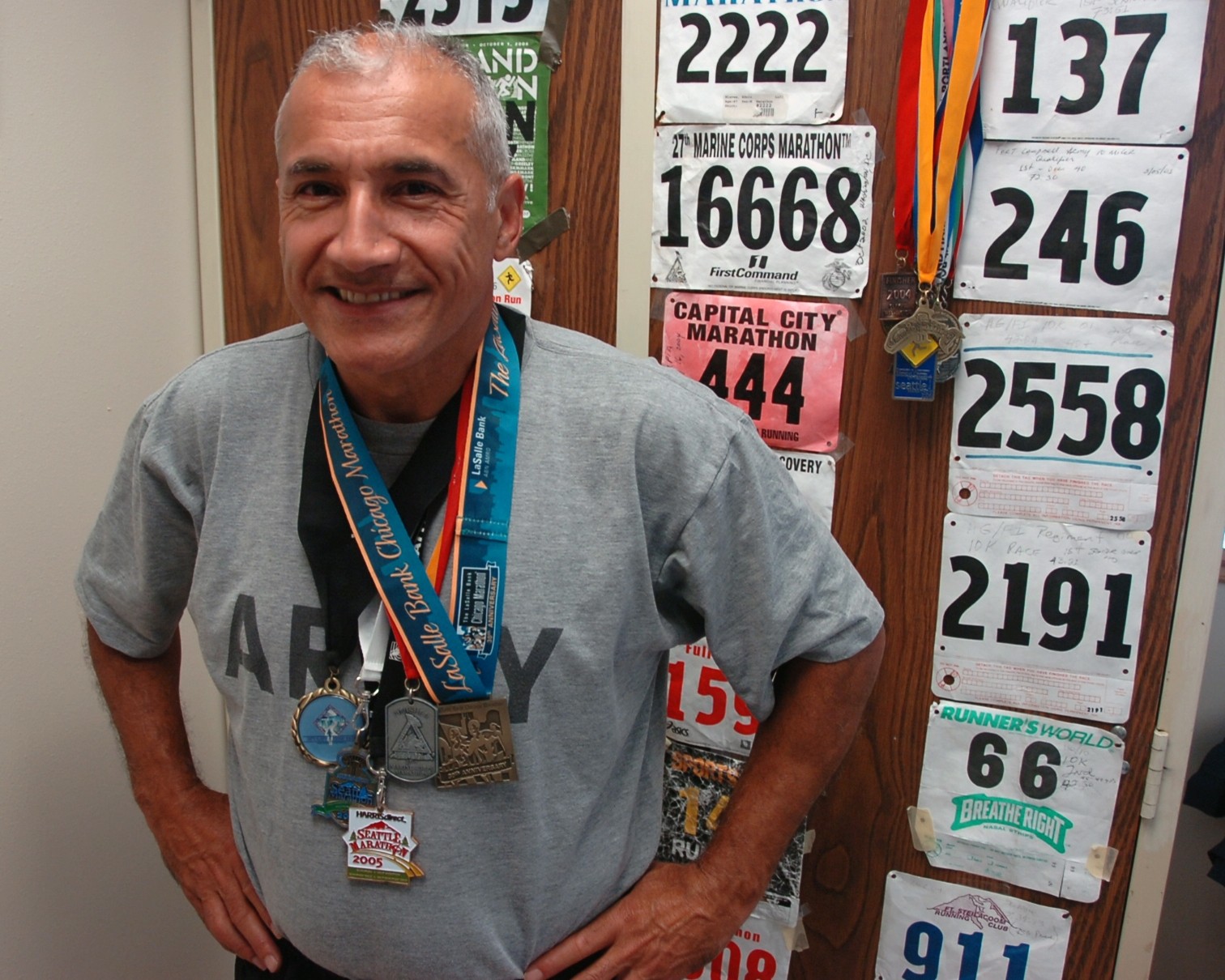
Social Sharing